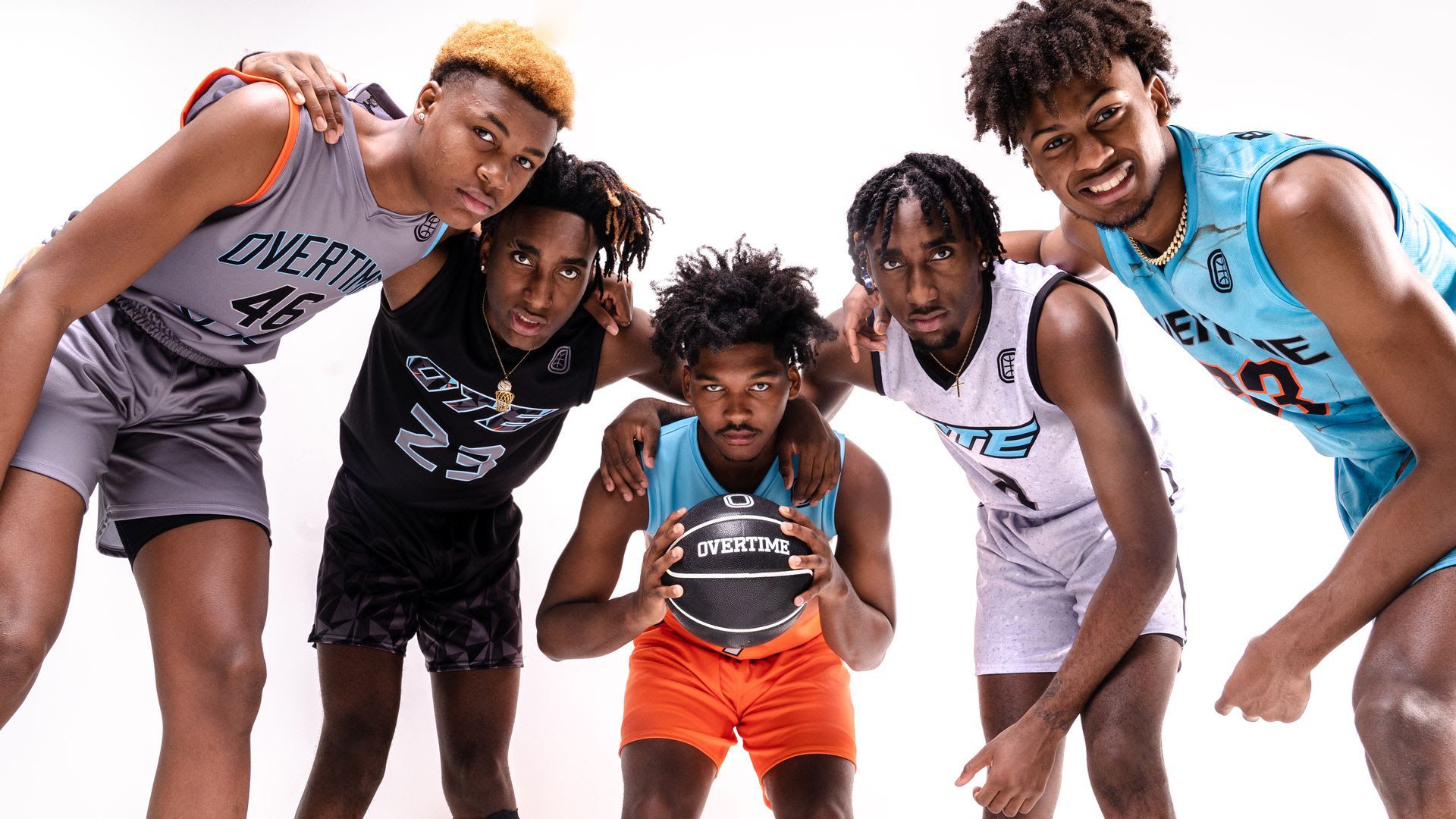| | | | | | | Presented By Prudential | | | | Axios What's Next | | By Jennifer A. Kingson, Joann Muller and Erica Pandey ·Nov 02, 2021 | | "Electric air mobility" is a hot topic among investors and futurists, offering the promise of a day when various newfangled aircraft ply the skies bearing people and goods. Joann Muller examines how the prospect is shaping up. - Today's reader photo comes from Sarah Wu, who took it while drinking her morning coffee from a room with a view of a golf course.
Invitation: Join Axios' Dave Lawler and Ben Geman tomorrow at 3:30pm ET for a News Shapers event discussing the COP26 United Nations Climate Conference. Register here. Today's Smart Brevity count: 1,194 words ... 4.5 minutes. | | | | | | 1 big thing: Electric air taxis prepare for takeoff |  | | | Illustration: Sarah Grillo/Axios | | | | Electric air taxis might someday leap from rooftop to rooftop, delivering cargo or ferrying passengers above congested roadways — but not until they can solve a host of technical and regulatory hurdles, Joann writes. - A less complex e-plane under development could bring many of the same benefits by hopping among underused airports.
Why it matters: Aviation is on the cusp of a revolution as significant as the jet age, with advanced air mobility — i.e., flying vehicles — promising a cheaper, faster and cleaner mode of transportation, according to Morgan Stanley. It pegs the potential value of the market at $9 trillion by 2050. Where it stands: Investors have pumped $5 billion into electric vertical takeoff and landing aircraft (eVTOLs) in the past two years, per data compiled by Phystech Ventures, an early-stage VC firm. - Startups in this space include Joby Aviation, Archer and Lilium — all of which have debuted on public markets through SPAC mergers at multibillion-dollar valuations.
- But their prototype planes aren't yet certified to fly, and experts say it could be a decade or two before eVTOLS are widely adopted.
The intrigue: Airbus and Boeing are working on vertical aircraft too, but the former leaders of those respective efforts both struck out on their own to establish companies that take different approaches. - Those companies, Airflow and Electra, are developing electric planes that need just a short rolling start to get airborne — about the length of a football field — and can fly longer distances.
- The planes, dubbed eSTOLS (electric short takeoff and landing aircraft) are cheaper and less risky than trying to invent a new type of aircraft from scratch, say the aviation veterans behind both companies.
- "The problem [with eVTOLS] is, you're looking at a billion dollars and don't even know if it's going to be enough," Airflow CEO Marc Ausman tells Axios. "And you don't know the market opportunity, because it doesn't exist."
What to watch: While air taxi companies will likely focus on short urban routes under 50 miles, look for companies like Airflow and Electra to fly longer routes by taking advantage of underused regional airports. Read the full story. |     | | | | | | 2. Why working mothers are burning out |  | | | Illustration: Annelise Capossela/Axios | | | | About 1 million working mothers have stopped working during the pandemic, and more could follow, Erica Pandey writes. Staggering stat: 23% of women with kids under the age of 10 are considering leaving the workforce, compared with 13% of men, according to a McKinsey survey. There's a slew of reasons why balancing work and parenting is hitting mothers harder than fathers. - Women spend an average of five more hours on child care and chores per week than men, per a report from scholars at London Business School and Harvard Business School.
- And many teleworking women have had to give up their house's one home office to their husbands — forcing them to work in less-than-ideal spaces, adding to stress and chipping away at productivity.
But it's not just what's happening in the home. There are dynamics at work that hurt women more than men, Ashley Whillans of Harvard Business School and Grant Donnelly of Ohio State University write in the Wall Street Journal. - Women are likelier than their male colleagues to take on administrative tasks, which means they're often saddled with urgent deadlines rather than work they can complete on a flexible schedule.
- And women are less likely than male colleagues to request deadline extensions at work, per new research from Whillans and Donnelly.
- They looked at a group of college students studying business and found that the men were "nearly twice as likely" as the women to ask for an extension on a big assignment.
- "Students who asked for an extension received grades that were 8.2% higher, on average. Because of their hesitation to ask for more time, female students' performance suffered," the researchers write.
Read the full story. |     | | | | | | 3. How abortion access could change |  Data: Axios Research; Cartogram: Sara Wise and Oriana Gonzalez/Axios Abortion would immediately become illegal in at least 12 states if the U.S. Supreme Court were to overturn Roe v. Wade, and more would likely follow suit quickly, Axios' Oriana Gonzalez writes. Why it matters: States have been preparing contingency plans for a post-Roe landscape while state Republicans ramped up efforts to get the landmark ruling overturned. And the future of Roe is on the court's docket. Driving the news: The court on Monday heard oral arguments in two cases challenging a Texas law effectively banning abortions after six weeks of pregnancy. Abortion providers and the Justice Department are both challenging the law. - In a month, the court will hear another major abortion case, challenging Mississippi's ban on abortion after 15 weeks. The state is asking the court to overturn Roe.
Where it stands: If the court were to ultimately overturn the precedents that established the constitutional right to an abortion, a patchwork of state laws would govern the procedure. - Eleven states have a "trigger law" in place — an abortion ban that would kick in right away if the court overturns its precedents. Four states have even amended their constitutions to prohibit any protections for abortion rights.
- Several other states don't have trigger laws in place but would likely move quickly to ban or tightly restrict the procedure if the court clears the way: Florida, Indiana, Montana, Nebraska and Wyoming would be prime candidates, according to new analysis from the Guttmacher Institute, a reproductive rights research organization.
- Alabama, Georgia, Iowa, Ohio and South Carolina have all enacted restrictive laws that were then blocked by federal courts. They could try to revive those policies in a post-Roe world.
The other side: At least 15 states and Washington, D.C., have enacted laws that would automatically keep abortion legal if Roe is overturned. Read the full story. |     | | | | | | A message from Prudential | | Prudential is the rock organizations and employees can rely on | | |  | | | | Prudential helps thousands of organizations effectively meet and manage the benefit, investment and retirement needs of employees. Why it's important: Strong benefit plans that work for everyone help employees feel unstoppable and companies enjoy a more productive workforce. Learn more. | | | | | | 4. Paying kids $100,000 a year to ditch school to play hoops |  | | | Courtesy: Overtime Elite | | | | Overtime Elite (OTE), the startup basketball league paying elite prospects six figures to ditch high school and skip college, launched this weekend, Kendall Baker writes in Axios Sports. How it works: OTE, founded by sports media brand Overtime, has recruited 24 teenagers, ages 16 to 18, to join the league, in which they'll be paid at least $100,000 per season, plus receive health insurance and equity stakes. Between the lines: Overtime, backed by big-name investors like Jeff Bezos and Drake, has built an audience of mostly Gen Z and millennial sports fans who want to follow teenagers on their path to the pros. - The mainstream media may not cover OTE games, but the company is banking on the fact that its target audience isn't watching ESPN anyway — they're following Overtime.
Read the full story. |     | | | | | | 5. Reader photo of the day |  | | | Photo: Sarah Wu | | | | What's Next: Self-driving golf carts Sarah Wu writes: While on my desperately needed P.T.O., I saw these autonomous golf caddies following golfers around. I've never seen these before!" "I took the photo at the New Seabury Country Club in Cape Cod, Mass. I was at a friend's house staying for the weekend, and her home is on the course." |     | | | | | | A message from Prudential | | Prudential is the rock organizations and employees can rely on | | |  | | | | Prudential helps thousands of organizations effectively meet and manage the benefit, investment and retirement needs of employees. Why it's important: Strong benefit plans that work for everyone help employees feel unstoppable and companies enjoy a more productive workforce. Learn more. | | | | Was this email forwarded to you? Get the daily dose of What's Next magic by signing up for our newsletter here. It's free! |  | | It'll help you deliver employee communications more effectively. | | | | | | Axios thanks our partners for supporting our newsletters. If you're interested in advertising, learn more here.
Sponsorship has no influence on editorial content. Axios, 3100 Clarendon Blvd, Suite 1300, Arlington VA 22201 | | | You received this email because you signed up for newsletters from Axios.
Change your preferences or unsubscribe here. | | | Was this email forwarded to you?
Sign up now to get Axios in your inbox. | | | | Follow Axios on social media:    | | | | | |
No comments:
Post a Comment